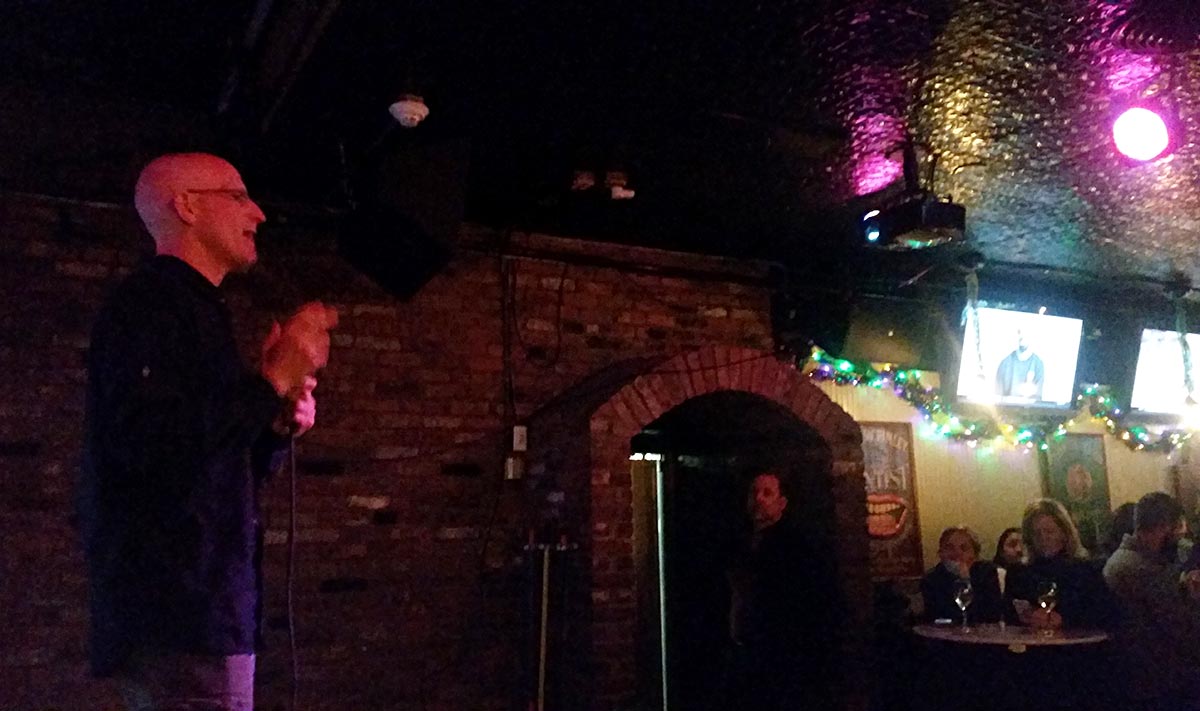The upcoming March for Science has already succeeded in generating immense enthusiasm and has the potential to be the starting point for a powerful movement. We’d like to keep the conversation about science going long after the marching is done.
Dr. Caroline Weinberg, a public health researcher and co-chairwoman of the march told the New York Times, “I will have considered it pretty much a failure if after April 22 all of this movement and all of this passion dissipates.” Fortunately, science is constantly providing us with new reasons to care about it, and there are many ways to get science into your everyday life even if you’re not a scientist.
Share your own ways to keep that passion strong using #scienceeveryday. Here are a few ideas from CSHL to help you get started:
Subscribe to science podcasts
Also available on: Stitcher, iTunes, Google Play
Podcasts are a great way to build science into your routine, because you can listen while doing otherwise mundane tasks like driving or cleaning, and you can have them delivered to your phone automatically. It’s free, and all it takes is a few taps on your phone—read our guide on how to subscribe.
CSHL’s Base Pairs podcast, which tells science stories that highlight the power of genetic information, is just one example. Other excellent science podcasts include Science Vs and Science Friday.
Find local science events

Take a few minutes to find out if there’s science happening near you. Universities, private research institutions, research hospitals, and other organizations that perform scientific research often have public events where you can learn more about that work and why people are doing it.
For those around Long Island, CSHL holds regular public walking tours and “science for the public” talks on campus, on topics ranging from mapping the brain to improving food crops like tomatoes. We also take our scientists out to a local bar for informal, interactive talks that we call Cocktails & Chromosomes. Next up: a public lecture from Professor Adam Siepel that will explore our Neanderthal ancestry, a Cocktails & Chromosomes featuring Professor Adam Kepecs on how our brains make decisions, and our Open House for science enthusiasts of all ages.
Additionally, the Alda Center for Communicating Science holds numerous public events, and “science café” events like Brookhaven National Laboratory’s PubSci and Secret Science Club in Brooklyn that take place in bars are becoming more common.
Sign up for science newsletters
Email newsletters from research institutions and science publications are another way to make a habit out of engaging in conversations about science. Once you subscribe, you’ll get round-ups of the latest science news delivered to your inbox automatically to remind you that science happens every day. You can sign up for CSHL’s monthly newsletter.
Follow science pages on social media
If you already go on social media everyday, make sure you get some science into your feed, and share the content that gets you thinking! Here’s a nice roundup from WIRED to give you some ideas.
You can also follow CSHL on Facebook, Twitter, Instagram, and LinkedIn.
The video above was shared widely from CSHL’s Facebook page, and it is great to see how much people care about spreading the message of support for science. As CSHL President Bruce Stillman says in the video, “we need your vocal advocacy.” We hope that with these suggestions, you’ll have plenty to share with co-workers, friends and family about why science deserves everyone’s support.
